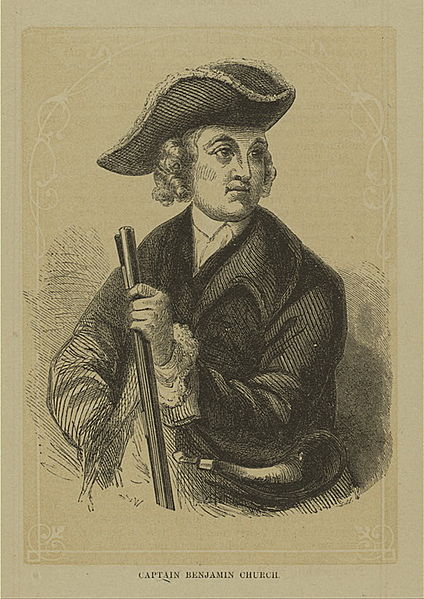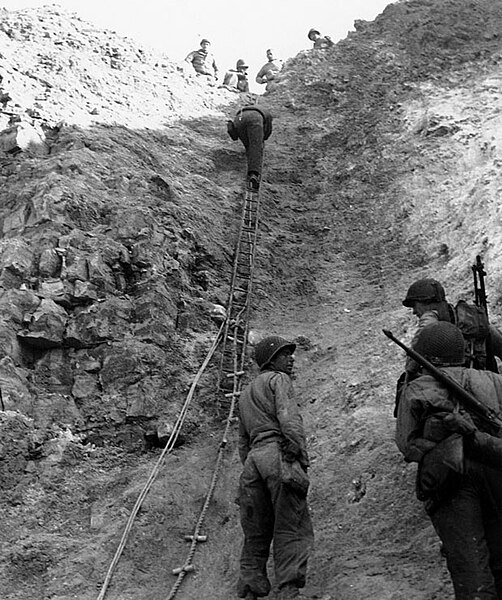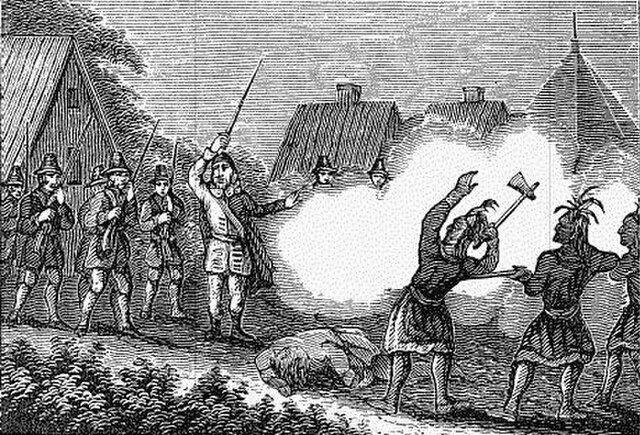United States Army Rangers
The United States Army Rangers are U.S. Army personnel who have served in any unit which has held the official designation of "Ranger". The term is commonly used to include graduates of the Ranger School, even if they have never served in a "Ranger" unit; the vast majority of Ranger school graduates never serve in Ranger units and are considered "Ranger qualified".
Colonel Benjamin Church (1639–1718) from the Plymouth Colony, father of American Ranging
D-Day, Pointe du Hoc
Rangers en route to liberate allied soldiers in the Cabanatuan POW camp
7 April 1968. Company E LRP team at LZ Stud awaiting Khe Sanh patrol
King Philip's War was an armed conflict in 1675–1676 between a group of indigenous peoples of the Northeastern Woodlands, the English New England Colonies and their indigenous allies. The war is named for Metacom, the Pokanoket chief and sachem of the Wampanoag who adopted the English name Philip because of the friendly relations between his father Massasoit and the Plymouth Colony. The war continued in the most northern reaches of New England until the signing of the Treaty of Casco Bay on April 12, 1678.
"King Philip's Seat," a meeting place on Mount Hope in Bristol, Rhode Island.
Site of "Nine Men's Misery" in Cumberland, Rhode Island, where Captain Pierce's troops were tortured to death
Colonists defending their settlement (non-contemporary depiction)
Benjamin Church: Father of American Rangers







